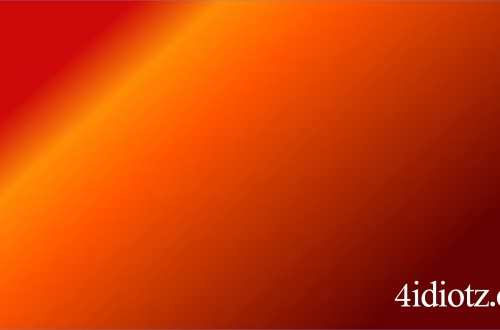Understanding Decentralized Autonomous Organizations (DAOs)
Summary:
Decentralized Autonomous Organizations (DAOs) are blockchain-based entities governed by smart contracts and operated by their members without centralized leadership. They enable collective decision-making, fund management, and decentralized governance, often linked to cryptocurrencies, DeFi protocols, or NFT projects. DAOs matter because they offer transparency, reduce intermediaries, and empower communities to coordinate globally. While revolutionary, they also face regulatory uncertainties and technical risks. Learning how DAOs function is essential for anyone interested in decentralized finance, Web3, or blockchain innovation.
What This Means for You:
- Participate in Decentralized Governance: DAOs allow you to have a voice in projects by holding governance tokens. Voting on proposals ensures you influence key decisions, such as fund allocations or protocol upgrades.
- Explore New Income Streams: Some DAOs distribute rewards to active contributors, offering freelancers and developers opportunities to earn crypto through bounties, liquidity mining, or curation.
- Reduce Dependence on Centralized Institutions: DAOs eliminate the need for banks or corporate structures for funding projects. You can crowdfund, collaborate, or invest in a trustless environment powered by smart contracts.
- Future Outlook or Warning: While DAOs represent the future of organizational structures, they remain experimental. Regulatory gray areas, smart contract exploits, and governance disputes can lead to financial losses. Always audit projects before participating.
Explained: Understanding Decentralized Autonomous Organizations (DAOs)
What Is a DAO?
A Decentralized Autonomous Organization (DAO) is an internet-native collective managed by code rather than executives. Members use governance tokens to vote on proposals, and smart contracts automatically execute decisions. Unlike traditional corporations, DAOs operate transparently on blockchains like Ethereum, ensuring tamper-proof records.
How Do DAOs Work?
DAOs rely on three key components:
- Smart Contracts: Self-executing code defines rules—fund releases, voting thresholds, and membership requirements.
- Governance Tokens: Token holders vote proportional to their stake. Some DAOs use quadratic voting to prevent whale dominance.
- Treasuries: Funds are pooled into multisig wallets or DeFi protocols for collective use.
Best Use Cases for DAOs
DAOs excel in:
- DeFi Protocols: (e.g., Uniswap, Aave) Let token holders decide fee structures or new asset listings.
- NFT Communities: (e.g., ConstitutionDAO) Enable fans to collectively purchase high-value assets.
- Venture Funding: (e.g., The LAO) Pool capital to invest in early-stage crypto startups.
- Freelancer Cooperatives: (e.g., DxDAO) Facilitate decentralized gig economies.
Strengths of DAOs
- Transparency: All transactions and votes are public.
- Permissionless Participation: Anyone globally can join.
- Automation: Reduces bureaucratic delays.
Weaknesses and Limitations
- Legal Uncertainty: Many jurisdictions lack frameworks for DAOs, risking liability.
- Slow Decision-Making: Large DAOs face coordination challenges.
- Security Risks: Bugs in smart contracts can drain funds (e.g., The DAO hack).
How to Join a DAO
- Purchase governance tokens (e.g., UNI for Uniswap).
- Stake tokens in voting platforms like Snapshot or Tally.
- Participate in Discord/Telegram discussions to propose initiatives.
People Also Ask About:
- Are DAOs Legal?
Legality varies by country. Wyoming recognizes DAOs as LLCs, but most nations lack clear laws. Consult legal experts before launching a DAO. - Can DAOs Replace Traditional Companies?
Not entirely—DAOs struggle with legal enforcement and scalability but excel in trustless, global coordination. - How Do DAOs Make Money?
Treasuries earn via yield farming, NFT sales, or service fees. Profits may be redistributed to token holders. - What’s the Biggest DAO?
MakerDAO manages $7B+ in collateralized debt. Other large DAOs include Uniswap and Aave. - How Secure Are DAOs?
Security depends on code audits. Insure funds via protocols like Nexus Mutual.
Expert Opinion:
DAOs are reshaping organizational governance but remain high-risk. Smart contract audits and diversified voting mechanisms are critical. Regulatory scrutiny is increasing, and tax implications for DAO rewards are often overlooked. Long-term, DAOs may merge hybrid models combining on-chain efficiency with legal compliance.
Extra Information:
- Ethereum’s DAO Guide: Explains technical foundations and use cases.
- DeepDAO: Analytics platform tracking DAO treasuries and governance activity.
- DAO Masters: Curated resources for aspiring DAO contributors.
Related Key Terms:
- How decentralized autonomous organizations work in crypto
- Best DAO governance models for blockchain projects
- Risks of investing in decentralized autonomous organizations
- Top Ethereum-based DAOs for beginners
- Legal status of DAOs in the United States
#DAOs #Complete #Guide #Decentralized #Autonomous #Organizations
Featured image generated by Dall-E 3




